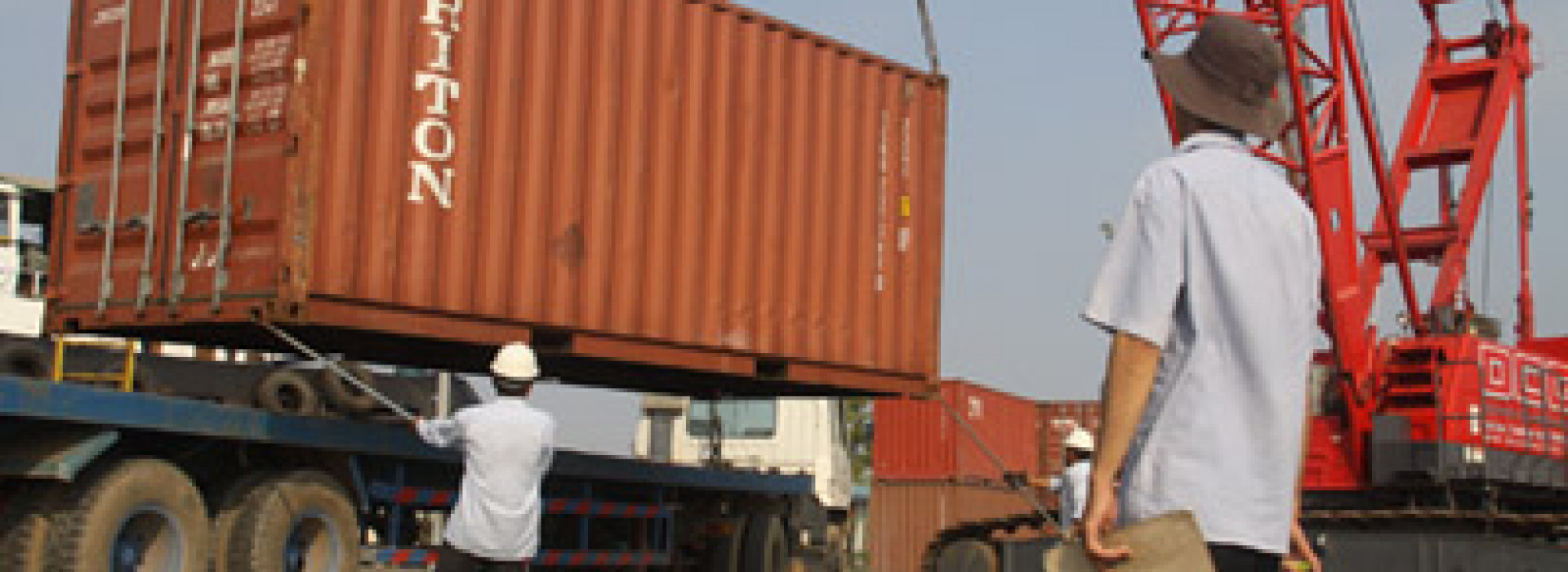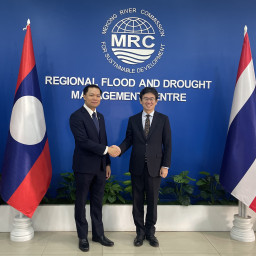Officials meet to implement pioneering Mekong waterways transport and trade agreement
Government officials from Cambodia’s Ministry of Public Works and Transport meet today with a wide ranging group of waterways users, from waterways customs officers to cargo forwarders to discuss the start-up of the agreement on cross-border waterway transportation signed between Cambodia and Viet Nam, over a year ago.
The agreement was the first between the two countries to lift cross-border navigation barriers, to improve efficiency and safety standards. It also outlines regulations to improve the safety of the shipping of dangerous goods, such as oil and hazardous liquid cargoes.
“Improved transport and trade along the river is exactly what we need. Today we will inform all stakeholders about the agreement, its implementation and how it can help commerce and transport along the Mekong waterways between the two countries. Coming together like this will help us realize the full potential of the Mekong River" said H.E. Mr. Hei Bavy, Chairman and CEO of the Phnom Penh Autonomous Port.
"Investors, shippers and all other water users can rest assured now that there is a firm legal basis for regulated cross-border trade between Cambodia and Viet Nam, and overseas partners," he said.
Goods transported through the Phnom Penh Autonomous Port increased 45 percent in 2010 as some 65,000 Twenty-Foot Equivalent Units (TEUs) were shipped through the port between January and November, compared to 43,000 TEUs for the same period in 2009, according to H.E Mom Sibon, Secretary of State of the Ministry of Public Works and Transport.
He said following the previous downturn in the global economy, river transportation is now high on the agenda again. The development of new deep sea terminals in Cai Mep, near Ho Chi Minh City has made shipping of container barges between Phnom Penh and Ho Chi Minh “very profitable”.
MRC will continue to support the implementation of this pioneering treaty.
Exports from Phnom Penh to the US or European ports now need only one trans-shipment at Cai Mep Port while before they need be transferred to another ship in Singapore as well.
The Mekong River Commission assisted the two countries in reaching the waterway agreement and says that improving the quality of water-borne transport has already shown benefits.
“By using rivers in a more efficient manner, export potential can improve and this will, in turn, help both countries to achieve its socio-economic goals,” said Mr. Pich Dun, Director of Operations of Mekong River Commission Secretariat.
“The MRC not only works on reducing non-physical barriers to navigation. With Australian and Belgian support, we continue to improve the safety and efficiency of inland waterway transport. The legal framework is part of one larger activity under the cooperation between the MRC and Belgium for a total of 9 million Euros implementing projects such as installation of channel markers and passenger jetties, developing measures for oil spill prevention, and establishing standards for the carriage of dangerous goods. We also focus on Green Mekong Navigation as river freight produces on average about one fifth of the greenhouse gas CO2 per ton per km that is produced by trucking goods on the road".
Notes to the editors:
Photos are available upon request. The map shows the extent of the Agreement. The map can be sent with a better resolution if required.
Under the 1995 Mekong Agreement, there is a requirement to promote the freedom of navigation in the basin.
The MRC Secretariat is the operational arm of the MRC, which is responsible for cooperation on the sustainable management of the Mekong Basin. In dealing with this challenge, it looks across all sectors including sustaining fisheries, identifying opportunities for agriculture, maintaining the freedom of navigation, flood management and preserving important ecosystems. Superimposed on these are the future effects of more extreme floods, prolonged drought and sea level rise associated with climate change. In providing its advice, the MRC aims to facilitate a broad range of dialogue among governments, the private sector and civil society on these challenges.
For more information, contact
Mr. Khy Lim, Communication Officer,
Phone:+856 20 5622 8131
e-mail: khy@mrcmekong.org,
website: www.mrcmekong.org





